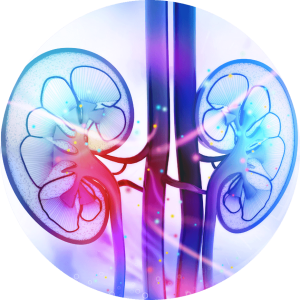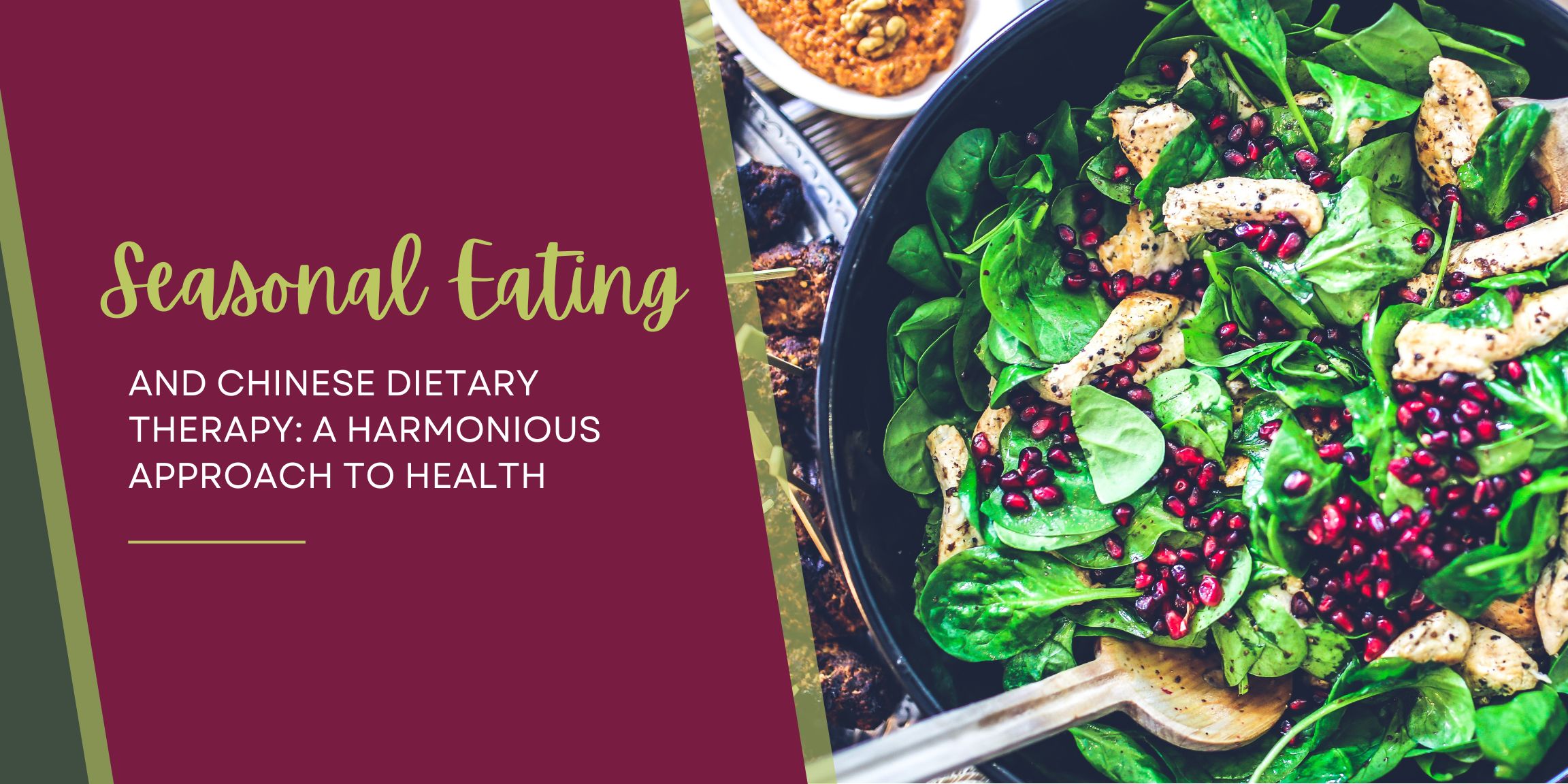- WE MOVED !!!
-
 Professional Acupuncture & Physical Therapy1118 East Superior Street
Professional Acupuncture & Physical Therapy1118 East Superior Street
Duluth, MN 55802(218) 724-3400 Clinic Hours
Mon8:00 am - 4:30 pmTue1:45 pm - 4:30 pmWed8:00 am - 4:30 pmThu8:00 am - 4:30 pmFriCLOSED

- Long Covid Booklet
Traditional Chinese Medicine
The Many Dimensions of the Kidney

Acupuncturists understand the body as a complex system of energy systems, meridians and organs. However, when an acupuncturist talks about an organ, like the spleen, heart or kidneys, they are not referring to the physical organ that sits inside your body, but rather the energetic side of these organs. The energetic system is much bigger than just the physical organ, and governs certain functions in the body on many levels.
The kidney system is one of the most important of these energetic organ systems.
In Traditional Chinese Medicine, the kidneys represent the deepest, most fundamental levels of energy in the human body. They are said to be the root of yin and yang in the body – two fundamental forces at play in our physiology. The kidneys also store a substance called “essence” that is our genetic code, our life force and our reproductive ability.
The kidneys in Chinese Medicine are related to the water element, which is the elemental energy of winter. Whereas many energy systems are all about movement, the kidneys are about rest, relaxation, rejuvenation – they are the energy of holding, of turning inward, of protecting that which is most important. Think of still reflecting pools, or a quiet winter night. These are kidney energy. The kidneys are often referred to in Chinese Medicine as our “root” – they are tasked with caring for the most precious parts of us that make us who we are.
 On a physical level, the kidneys govern the water passageways within the body (appropriate being the water element!) as well as controlling growth and reproduction. In a five element understanding of Chinese Medicine, the kidneys are at the end of the life cycle, before rebirth occurs again (such as winter making way for spring.) This means the kidneys in particular have a vital role to play in end of life transitions.
On a physical level, the kidneys govern the water passageways within the body (appropriate being the water element!) as well as controlling growth and reproduction. In a five element understanding of Chinese Medicine, the kidneys are at the end of the life cycle, before rebirth occurs again (such as winter making way for spring.) This means the kidneys in particular have a vital role to play in end of life transitions.
The spirit aspect of the kidneys is called Zhi, or willpower. Again, the kidneys are our root, our fundamental and core energy. When that system is weakened, a person may not feel drive, motivation or have the ability to push themselves. Their understanding of who they are and what they can do has been diminished.
The emotion associated with the kidneys is fear. When the kidneys are weak, a person may be startled or frightened easily, or may experience fear in disproportionate ways. Likewise, shock, trauma and fearful situations weaken the kidney energy, which is why many of the common symptoms of PTSD have a kidney imbalance at their root. The person’s core has been shaken.
The kidney energy, being the deepest level of energy in the body, takes time to replenish and strengthen, which means patience is key. Also, the kidney energy naturally declines over the life cycle, which is the normal aging process. So as we age, protecting the kidneys becomes all the more important!
Nourish the Kidneys through Food
Being associated with the water element, the kidneys are nourished by foods that come from the water – fish, seaweeds and shellfish are nourishing to this system. The kidneys are associated with the salty taste, so naturally salty foods such as miso or millet also are good choices. Avoid foods that are damaging to your root energy, such as sugar, caffeine, alcohol, greasy foods and highly-processed foods.
Nourish the Kidneys through your habits
The kidneys are damaged by overwork, too much responsibility, lack of sleep and a frenetic schedule. In other words, most of us living in modern society are taxing our kidneys! This means it is all the more important to carve out time and space to take part in kidney-nourishing habits.
As we mentioned, the kidneys are nourished through rest and rejuvenation. Pay attention to your sleep, and be sure you are getting the hours that you need! Take a nap in the day if you need it. Engage in gentle, relaxing forms of exercise, like yoga or tai chi. Try meditation or guided visualizations to calm and center yourself. Find a schedule that works – one that really works – for you.
Bring the water element into your life and your home by getting a small decorative fountain, using essential oils, taking baths or spending time near rivers or oceans or other bodies of water.
The kidneys, being the source of our reproductive strength, are also weakened by excessive sexual activity. So go for quality over quantity.
The kidneys represent what makes you, you. So take the time to give them the support they need!
An Ounce Of Prevention Is Worth A Pound of Cure

Prevention is better than a cure.
It is better to stop something bad from happening than it is to deal with it after it has happened. So get an immune enlivening treatment.
Let’s get you in for a check up today. Call Heidi at (218) 724-3400 to schedule an appointment in Duluth Minnesota.
Seasonal Eating and Chinese Dietary Therapy: A Harmonious Approach to Health

Traditional Chinese Medicine (TCM) proposes a holistic approach to health and well-being, emphasizing the importance of harmony and balance in every aspect of our lives. This extends to our dietary choices, with a particular emphasis on aligning our diets with the changing seasons.
In TCM, seasonal eating is not merely a nutritional philosophy but a way to live in harmony with the rhythms of nature. Each season offers a unique bounty of foods that not only taste best at their peak but also provide specific nutritional benefits that cater to the body’s seasonal needs.
In this article, we will explore the concept of seasonal eating according to TCM, provide a list of foods for each season along with a short recipe, and discuss how Chinese dietary therapy can aid in managing several common conditions.
Foods and Recipes for Each Season
Spring
Foods: Leafy greens, sprouts, berries, lemons, asparagus, green beans, peas, and strawberries.
Recipe: Spring Green Salad
Toss together a handful of fresh leafy greens, sprouted seeds, sliced strawberries, and peas. Dress it lightly with a lemon vinaigrette for a refreshing spring salad.
Summer
Foods: Watermelon, cucumber, tomatoes, zucchini, bell peppers, apricots, and peaches.
Recipe: Chilled Cucumber Soup
Blend peeled and chopped cucumbers with plain yogurt, fresh dill, and a squeeze of lemon juice. Chill before serving for a cooling summer soup.
Autumn
Foods: Pumpkin, sweet potatoes, apples, pears, beetroot, and figs.
Recipe: Baked Apples
Core apples and fill with a mixture of oats, cinnamon, and honey. Bake until tender for a warming autumn dessert.
Winter
Foods: Root vegetables, hearty soups, stews, nuts, meats, and spices like ginger and cinnamon.
Recipe: Hearty Winter Stew
Sauté root vegetables with your choice of meat, add in warming spices, and let simmer until everything is tender and flavors meld together.
Chinese Dietary Therapy for Common Conditions
Chinese dietary therapy can aid in managing and preventing various common conditions, often complementing other TCM treatments. Here are a few examples:
Digestive Issues: Bloating, indigestion, and constipation can be managed by avoiding cold and raw foods, especially in the winter. Warming foods that aid digestion, such as ginger and cinnamon, are recommended.
Colds and Flu: Warming foods like garlic, onion, and leek can help fend off colds. If a cold has already set in, cool and light foods like mint tea or pear soup can alleviate symptoms.
Inflammation: Cooling foods like cucumber, watermelon, and mint can help alleviate inflammatory conditions, while warming foods like ginger can stimulate blood circulation and promote healing.
Mood Disorders: Certain foods can help balance the body’s Qi, leading to improved mental health. For example, the sweet taste, associated with the Earth element, can provide comfort and aid in stress management when consumed in moderation.
Insomnia: TCM recommends a balanced diet to ensure a good night’s sleep. For instance, sour foods can help restrain the mind, aiding those who have trouble sleeping due to excessive thinking.
Seasonal eating according to TCM offers a holistic, balanced approach to nutrition, placing emphasis on harmony with nature’s rhythms. By understanding the thermal qualities of foods, eating according to the seasons, and leveraging the therapeutic power of dietary therapy, we can promote overall health and manage common conditions in a harmonious and natural way.
Acupuncture and Heart Health
 Researchers from the Tianjin University of Chinese Medicine tested the efficacy of acupuncture, herbs and drug therapy for heart health, and what they found was incredible. The addition of Traditional Chinese Medicine therapies increased patient outcomes by 28 percent, with regards to arrhythmias, palpitations and tachycardia. The researchers tested prescription medications alone and with the addition of acupuncture and herbs. In this study, the addition of acupuncture and herbs increased the positive effect and decreasing the symptoms the patients were experiencing. The researchers used the exact same protocol for all patients involved in the study. The same acupuncture points, herbal formula and pharmaceuticals were used on all participants. For the treatment group, the effective rate was 92 percent overall.
Researchers from the Tianjin University of Chinese Medicine tested the efficacy of acupuncture, herbs and drug therapy for heart health, and what they found was incredible. The addition of Traditional Chinese Medicine therapies increased patient outcomes by 28 percent, with regards to arrhythmias, palpitations and tachycardia. The researchers tested prescription medications alone and with the addition of acupuncture and herbs. In this study, the addition of acupuncture and herbs increased the positive effect and decreasing the symptoms the patients were experiencing. The researchers used the exact same protocol for all patients involved in the study. The same acupuncture points, herbal formula and pharmaceuticals were used on all participants. For the treatment group, the effective rate was 92 percent overall.
Traditional Chinese Medicine, just like Western medicine, believes the heart is responsible for the circulation of blood. When the heart is strong, circulation will be sufficient, the body will be well-nourished and the pulse will reflect that by being full and regular. Both medical systems agree that a weak heart can manifest as palpitations, chest pain and even heart disease or a heart attack. Where the two medical systems differ is this: TCM also acknowledges the heart “houses the mind”.
In TCM, the heart and the mind are virtually inseparable. The heart governs the ability to think clearly, sleep soundly and maintain a good memory. Our emotional state is strongly influenced by how healthy or unhealthy our heart may be. A weak and deficient heart may create feelings of anxiety and mania, while also contributing to insomnia, forgetfulness and lack of concentration.
Heart health can be reflected in the facial complexion also. A nice rosy complexion indicates a strong healthy heart, while a pale or sallow complexion is indicative of a deficient, weak heart. If the heart blood becomes stagnant, the complexion may have a purplish tint. When the complexion is reddish, this may indicate heart heat.
Acupuncture and TCM have been managing heart health for centuries. Regular acupuncture treatments have been found to be very helpful in lowering blood pressure. The needles stimulate the release of opioids, which then decrease the heart’s activity and its need for oxygen. This in turn, helps lower blood pressure.
Stress is another factor that can greatly affect the health of the heart. Unmanaged, chronic stress can lead to heart disease, high blood pressure, heart arrhythmias and even heart attacks. Numerous studies have shown stress can be easily managed through the use of acupuncture. TCM offers more than just acupuncture to treat stress though. Herbal formulas and exercises like tai chi and qi gong are all wonderful tools for managing stress and keeping the heart healthy.
Poor sleep and insomnia has been linked to heart failure, heart attacks, high blood pressure, stroke and obesity. And yet again, TCM can help treat a wide array of sleep problems without the harsh side effects of many pharmaceuticals.
Without a healthy heart, the body cannot function properly and the mind may be clouded and disconnected. Call Heidi at (218) 724-3400 in Duluth Minnesota for a consultation to see how TCM can assist you with all of your heart health needs.
Acupuncture and Men’s Health

Traditional Chinese Medicine (TCM) is a complete medical system that has been around for nearly 3,000 years. It combines nutrition, herbs, acupuncture and other modalities to help keep the body functioning properly, while also treating any ailments that might occur. TCM has been used to treat both men and women, regardless of age and it is frequently becoming the medical choice for those who prefer to treat things naturally.
There are certain health issues more prevalent in men than women and many of these conditions can be easily controlled or treated using Traditional Chinese Medicine. Afflictions such as high blood pressure, depression, urinary issues, stress and prostate problems are just a few of the issues that are more frequently seen in men than women. And these issues, along with many others, respond very favorably to acupuncture and TCM.
Most people think of acupuncture for pain relief, but the truth is it can treat much more. Acupuncture can help with anxiety, depression, heart health, insomnia, digestive issues and of course any kind of pain. Acupuncture is most commonly thought of as a way of relieving pain and it is usually sought out after everything else has failed to provide adequate pain relief. Without purposely trying to cause a debate between the sexes, it is statistically shown that men are less likely to seek out help when they experience pain, as they don’t want to appear weak. This is where something like acupuncture can be a great asset for men. Regular acupuncture treatments as preventive medicine can help keep them in top shape, thus avoiding aches, pains, strains and pulls.
Acupuncture also calms the mind, the nervous system and the endocrine system. All of these things work in conjunction to keep the body functioning properly. However, in the world we currently live in, stress, anxiety and depression have become rampant. Specific acupuncture points can literally decrease the heart rate, slow breathing and relax the mind in a matter of seconds to minutes. This helps alleviate the added stress that men, in particular, feel on a daily basis.
TCM has a long history of being used to help with fertility issues and sexual vitality. As men age and life takes over, many men experience a lack of libido and decreased sexual function. Improperly balanced hormones affected by long hours at the office, improper diet and lack of sleep can all lead to sexual dysfunction and fertility problems. This all relates to the kidneys in Traditional Chinese Medicine. Regular acupuncture treatments and herbs are a great way to return hormone levels to normal and restore sexual vitality in men.
In much the same way that TCM helps balance hormones within the kidney and endocrine system, it is also frequently used to regulate the circulatory system. Men, once again, tend to have higher levels of stress that can affect the heart and circulatory systems. Specific acupuncture points and herbs can easily lower blood pressure, calm heart arrhythmias and increase circulation to the peripheral areas of the body.
This just touches the tip of the iceberg when it comes to men’s health. But it is easy to see why choosing acupuncture to help keep the body in alignment is a great option, especially for men. Visit Heidi in Duluth Minnesota to take charge of your health today!
